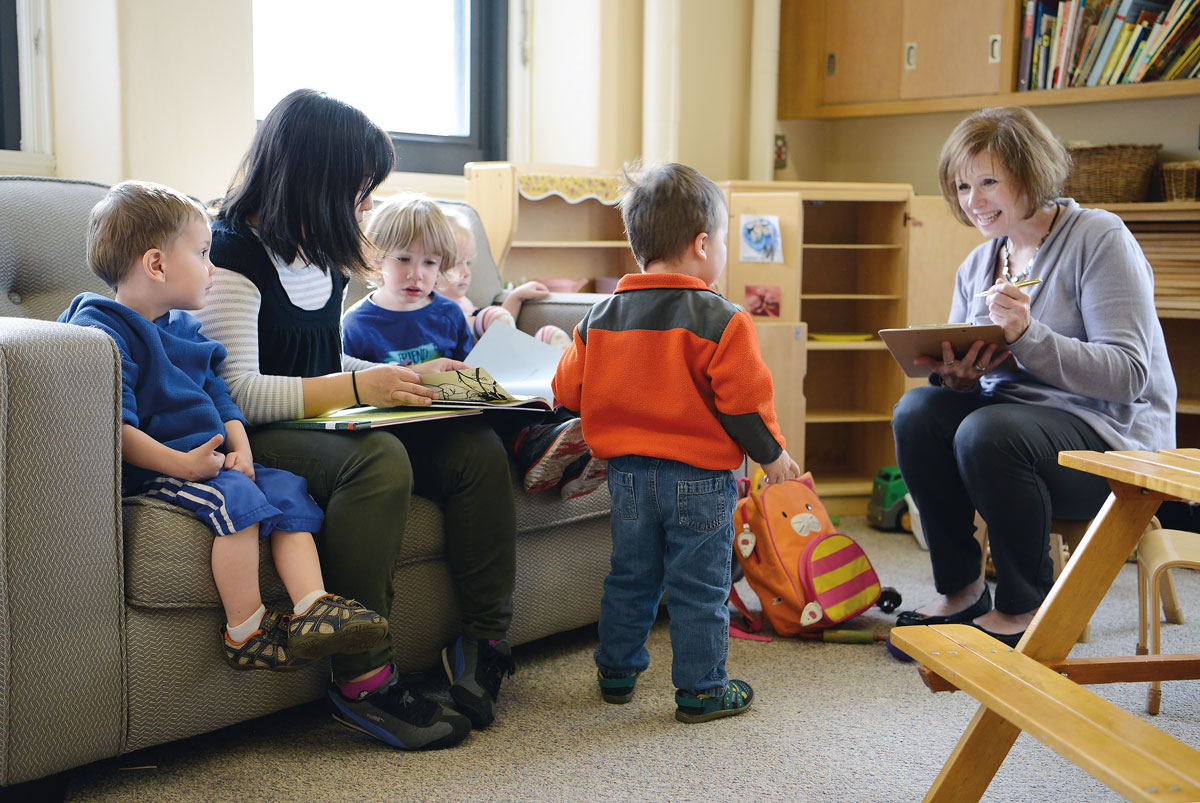Professionals who work on the frontline with children and families living in high-stress situations or with challenging problems need large amounts of emotional energy. Even in the best of times those circumstances can feel overwhelming and draining, leading to job burnout, emotional numbing, or even to secondary traumatic stress.
Helpful in this arena has been reflective supervision/consultation (RS/C), which has been rapidly growing in popularity within disciplines connected to the infant and early childhood field. RS/C involves ongoing regularly scheduled meetings between a professional and a consultant or group of professionals during which time the professionals discuss the challenges of their work. Emphasis is placed on the consultant serving as an active listener, allowing the professional to discover insights on their own. These discussion sessions usually last 60 to 90 minutes.
RS/C is designed to explore the thoughts and feelings stressful environments arouse in professionals and, through talking about them, it helps to mitigate compassion fatigue, burnout, and ultimately staff turnover, which is prevalent in child care and child protection.
“Job stress results in staff turnover—a major issue in the early childhood field,” says Christopher Watson, a researcher at the Center for Early Education and Development (CEED) in the Institute of Child Development. “Child care providers, early educators, home visitors, mental health clinicians, early interventionists, child welfare workers, and other early childhood professionals have found that reflective supervision/consultation sustains them by providing a safe space to wrestle with the complexities and powerful emotions stirred up by their jobs.”
Although RS/C has been growing in popularity with robust theoretical and clinical literature support, there is a dearth of evidence to document its impact. That’s what Watson is looking to address.
Watson is the director of CEED’s Reflective Practice Center (RPC), created through funding from the Lynne & Andrew Redleaf Foundation. The first of its kind internationally, RPC serves as an intellectual home for high-quality, cutting-edge research in reflective practice. One of its current projects is the Reflective Interaction Observation Scale (RIOS), of which Watson is the principal investigator.
RIOS is the first research tool developed to examine the interactions between professionals receiving RS/C and the consultants providing it. By coding RS/C conversations, RIOS can measure the content of the discussions and their reflective depth. These measurements can unearth useful data to improve future RS/C settings with those individuals. The findings have also been found to be valuable in a much broader way.
“The RIOS was originally designed as a research tool to help us identify the active ingredients in reflective supervision and consultation and to measure its impact,” Watson says. “However, since its creation, the RIOS has been used as a framework to train reflective supervisors and as a guide to providing reflective supervision and consultation.”
As a training tool, RIOS can identify concrete topics of conversation and the communication processes involved in reflective work.
“The strength of the RIOS is that it provides a structure to organize the critical components and processes that make reflection such a powerful way in which to support professionals as they address the tremendous challenges faced by the families they serve,” Watson says.
Work on RIOS began nine years ago through the research committee of the Alliance for the Advancement of Infant Mental Health, a global organization with 30 affiliated state organizations in the US and additional chapters in other countries. As the chair of the Alliance research committee, Watson led monthly conference calls with researchers across the country during which they developed and refined RIOS. For the past several years, Watson’s team at the U has further refined the tool.
“I have been involved in professional development since I entered the education field in 1991,” Watson says. “RIOS, as the lead focus of my research and professional development projects, fulfills my goal of helping professionals do their work well and maintain their sense of self-efficacy and enthusiasm for their work.”
Story by Kevin Moe | Winter 2020
Learn more about the Reflective Practice Center.
 Reflective supervision/consultation has been shown to help ease stress for those who work with children and families. Photo courtesy of CEHD
Reflective supervision/consultation has been shown to help ease stress for those who work with children and families. Photo courtesy of CEHD